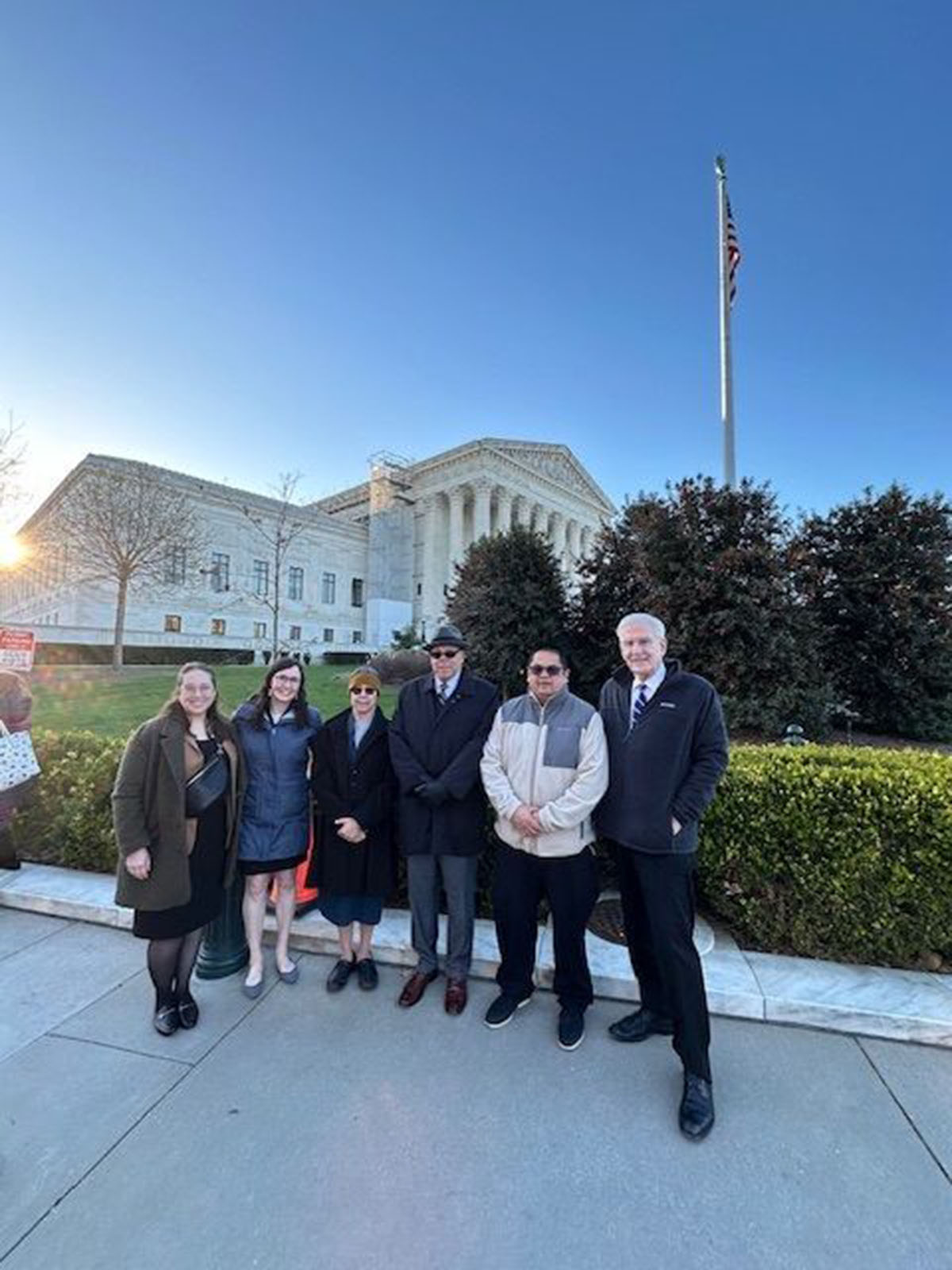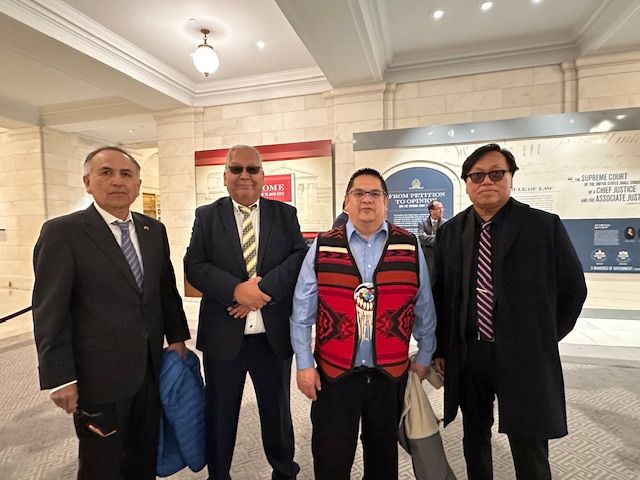March 25, 2024
The US Supreme Court heard oral arguments today in Becerra v. San Carlos Apache Tribe and Northern Arapaho Tribe, regarding self-determination contracts between tribes and the Indian Health Service. The outcome will clarify the meaning of “contract support costs” in a series of cases heard by the court over the last 20 years.
Many thanks to Warm Springs Chairman Smith for attending with counsel Howie Arnett and representing COLT! San Carlos Apache Tribe Chairman Rambler and other leaders thanked COLT for the great amicus brief (below) and continuing support at the United Nations.
The San Carlos Apache Tribe and the Northern Arapaho Tribe both won their cases at the circuit court level, allowing them to be paid by the IHS for contract support costs incurred by billing third-party insurers. The Biden administration subsequently appealed both tribal victories.
From the tribal perspective, this case is about equality and fully stepping into the shoes of the United States. The tribes want the same program funding IHS would have if it was still running the program. They seek equality in funding in the program, nothing more, nothing less.
Congress recognized that Tribes incur overhead costs that federal agencies don’t incur. These include common costs for federal contractors, such as auditing and reporting, as well as costs for services that agencies receive from sister agencies. Tribes don’t have access to those services.

These are unique government contracts designed to put Tribes on an equal level with IHS in terms of program dollars from whatever source. The suit seeks to enforce the special ISDA mandate to add extra overhead costs on TOP of the program dollars, so that all program dollars go into program services.
The focus for the Tribes is not being penalized by having to take that extra tribal overhead out of the program dollars (when the agency gets to use all of the program dollars on the programs).

